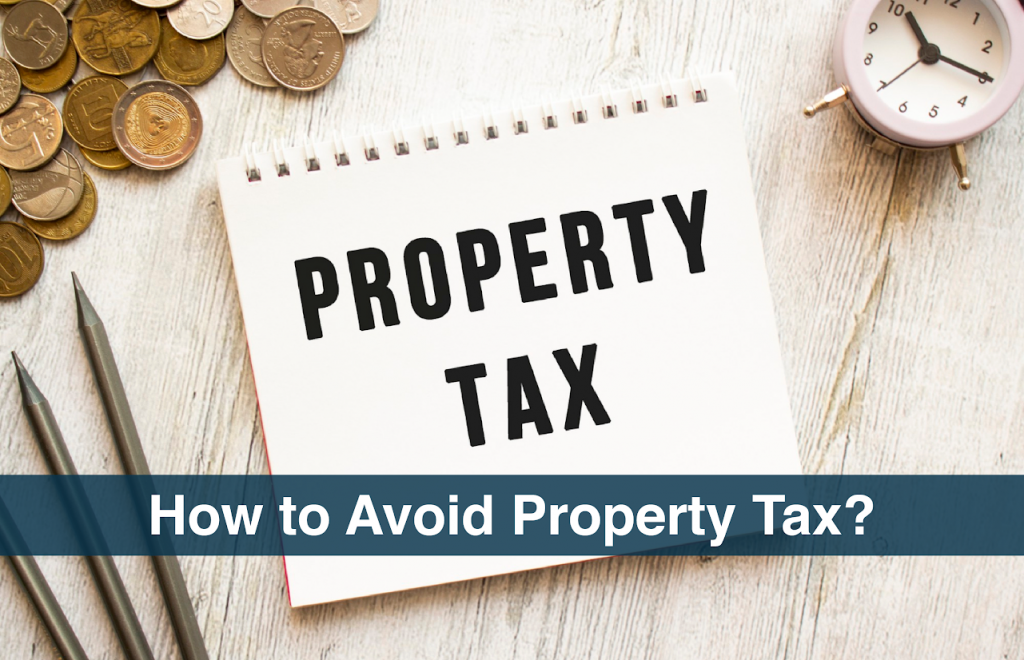
The real estate market has a supersonic trend in terms of ROI. Unless you invest in a rock, you probably know that the housing market is booming in the United States. According to the SG INC CPA analysis, the rate at which homes sell has not been seen since 2005.
So, the real estate tax bill surges because housing prices are at all-time highs. However, many real estate investors and landlords do not consider their property taxes. Property taxes pertain to the value of your tangible property. For instance, if you own it as a home, its price value will affect your property tax. If the property prices upsurge, so will your property taxes. In this blog, our professional CPAs will share insights on how you can put off the property tax bills in a viable way.
Why Property Taxes Save-up is Necessary?
Property values increase daily, as do the property taxes likewise. So, how can you avoid or save your real estate tax payables? How can you save on property taxes? If you stick around until the end of this blog, SG INC CPA will help you find the most effective ways to reduce your real estate tax bill. So, instead of your property taxes swallowing up your real estate income, you must learn some legal ways to save on property taxes.
However, let’s learn about our property taxes. Before our CPAs start elaborating on how to reduce your property taxes, you must be familiar with some property tax-related terms. First, Let us explain how property taxes work for you so you can plan your income taxes accordingly.
Here, there are five aspects of property taxes in the US:
1. The fair market value of your home.
2. The assessed value of your home.
3. The exemptions you claim.
4. The millage rate, which is effectively your tax rate.
5. The levying entities that you are paying these property taxes to.
How Property Assessment Works?
Property taxes are easy to know when you learn about property tax assessment. Our real estate taxation expert’s help you determine how not to pay taxes directly on the fair market value of your property. Instead, we assess your pay property taxes on the net assessment worth of your property.
Through this, you can take a look into the net assessment value of your real estate property. We make it a simple process for the assessed value of your property. You need to subtract any exemptions from the tax liability on your property. However, if you want to take advantage of the exemptions, our real estate tax consultants are here.
What Involves in Assessment Value?
We here at SG INC CPA often entertain questions such what exactly is this assessment value stuff? How is that different from your fair market value? The assessed value of your property is the percentage of your real estate possessions. The value is subject to your property taxes.
Categorically, a landlord needn’t pay property taxes on the full value of his property. We can calculate the assessed value of your property. For instance, in the city of Dallas, the assessed value of your property is 40%. So if its capital value is worth $4m, then the assessed value of your home would be some $200,000. This very amount would be a matter of taxes. It is the case when you don’t use any property tax exemptions.
How to Avoid Property Tax?
As previously mentioned, the concept of fair market value on the real estate tax bill. The taxable property bills are what your city or State pronounces liable to your property.

SG INC CPA assists you in having real estate professional tax benefits. Tax avoidance and exemptions are only workable when you prove a reason to the IRS to believe your property is worth less than what they are liable for on your bill.
How We Solidify Your Tax Case?
Our property tax experts pick out the valid logic with proof to save your real estate tax bill liability. We also help appeal it to the IRS or your local tax body. Although your property tax relies on the assessed value of your property, thence the assessed value goes up on the fair market value of your property. So, our CPAs and tax consultancy team still assist you in keeping that in check.
What if FMV is Too High?
If the fair market value (FMV) of your property is too high, even though we will flourish the assessed value of your property. We also help calculate your taxes so that you can grasp the preliminary analysis. So, we make it viable for you to disagree with the fair market value. We craft this case to file an appeal for tax exemptions; otherwise, we say real estate property tax avoidance.
Following are Instincts we render to flourish the case:
We Analyze Your Assessment Letter
In most cases, our CPAs and tax team ask you for the assessment letter that the local tax body will send out as notice on your property tax assessment. We scrutinize your fair market value to evaluate whether your property value is too high.
Following this, we will help challenge your case to the tax authorities. We recommend that you act immediately because the tax authorities give you only about 30 to 40 days to submit an appeal. So, once you receive your tax assessment notice, if you missed that deadline, you must submit your appeal next tax year.
We Study the Data
Most of our clients reach out to us for property tax in Texas to check the facts listed about your property. Our tax analysts see whether the plot or building size is correct. There’s a big difference between 0.5 acres and 5 acres. We review all of the facts about your property to ensure no incorrect assumptions are listed in your property billings.
We Check the Comparability
Next, to find the possibility of tax avoidance, we will compare the recent properties sold in your area. We will make a comparable analysis to yours to look at what they are paying in property taxes compared to you. We can easily find this because most local tax bodies have public databases.
We also request you look over your data with the tax authorities. Once we find this information, we will detect that comparable properties are under assessment to lower property taxes. Furthermore, we can also help you find a valid case for reducing your property taxes.
Request a formal review
Once we have done our research, we will prepare for your local assessor’s office to request a formal review from the tax body. We explained that the taxpayer would like to discuss his assessment and present his case. We ask them for a formal review of your assessment and believe they will revise your tax bill.
Appeal the review if you disagree with it
If your review is unsuccessful, we still have ways to appeal it with solid proof. However, if you get to this standstill stage, do not worry. We also have the attorney to file your appeal for sure estate professional tax benefits. SG INC CPA teams up with many property tax specialists who specialize in review and reappear to appeal your case.
What if the Last Appeal is declined?
In a rare scenario when your last appeal gets declined, even though we have a strategic plan against the review, it is unsuccessful. We move on to the second strategy for lowering your property taxes: opting for property tax.
Final Thoughts
In wrapping up the scroll of real estate tax bill discussion, we say there are ways to avoid property taxes through an undeniable application for property tax exemptions. SG INC CPA has a plan and team for file preparation on your exemption.
And there you grab the idea, folks, that you can reduce your property tax bill in two main ways. You can appeal the fair market value assumption that you’re State or city defines or claims exemptions to lower your net assessed property value. We are here to extend a helping hand for your property taxes in Texas or anywhere in the USA.
